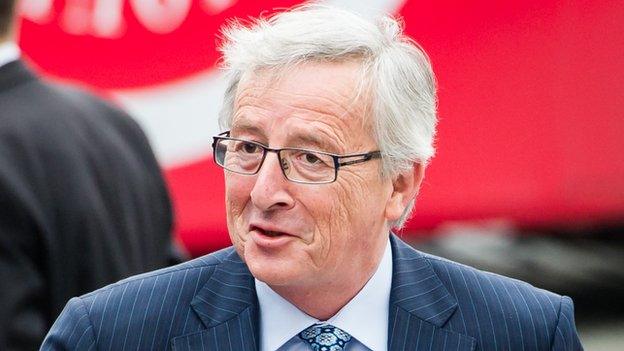European Parliament: The power battles begin again
- Published
- comments
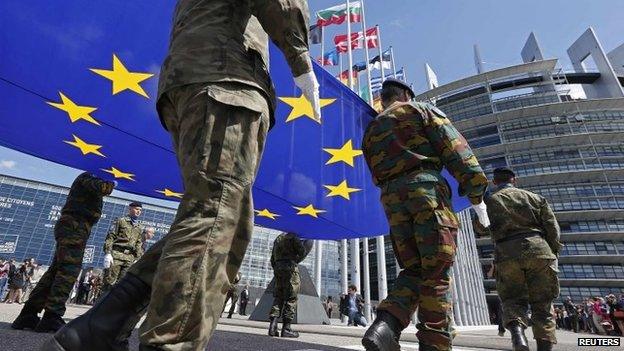
Despite the rise of the Eurosceptics, the European Parliament remains dominated by pro-EU parties
In Strasbourg on Tuesday the new and increasingly powerful European Parliament is meeting.
It will bristle with energy. There will be a parade of anti-establishment figures, many of whom want to shake the EU temple. Marine Le Pen, Nigel Farage, Beppe Grillo and others will stalk the corridors and attract the cameras like moths to a flame.
But power remains where it was. Seventy per cent of MEPs support the pro-European parties of the centre-right, the Socialists, the Liberals and the Greens. Eurosceptics are on the march, but they had 15% or more of the vote in only six countries.
The first order of business is the filling of another of the EU's big posts, the president of the parliament. Almost certainly it will go once again to the Socialist Martin Schulz.
Why? The largest grouping, the centre-right, landed Jean-Claude Juncker as head of the Commission.
So - in the way power works - the Socialists will demand their candidate presides over the parliament.
Mr Schulz, a German socialist, had his eye on becoming vice-president of the Commission with an economic portfolio. Chancellor Angela Merkel made clear that would not happen.
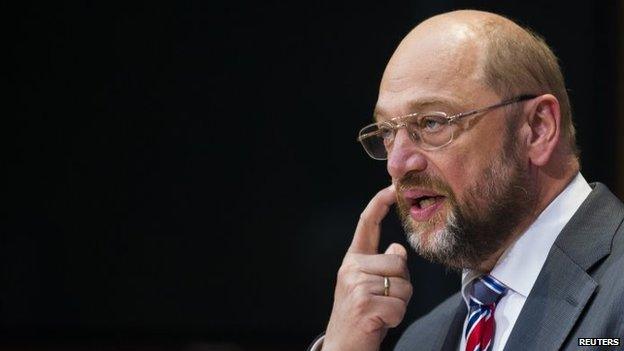
Socialist Martin Schulz is expected to become president of the parliament
Parliament's next task will be to vote on Jean-Claude Juncker's nomination to head the Commission on 16 July. It should be a formality but some Socialists are demanding a fundamental shift away from what they call "the austerity-only policy".
The real jockeying for power will be over the new Commission and who gets which portfolio. Some countries are already putting forward names.
It is a hard-edged game. David Cameron, for instance, can name his preferred Commissioner but it is a matter of negotiation with Jean-Claude Juncker as to which portfolio he/she gets.
'Britain is indispensible'
The UK will seek a key economic portfolio like the internal market, competition or energy.
It will be an early test of David Cameron's influence - France has made it clear it wants the powerful competition job.
All of this will play out over the summer, with the candidates having to appear before parliamentary committees in September. The new Commission needs to be in place by the end of October.
Also, there will be no pause in the wider debate about Britain's future in the EU. It now openly troubles Europe's leaders in a way it didn't nine months ago.
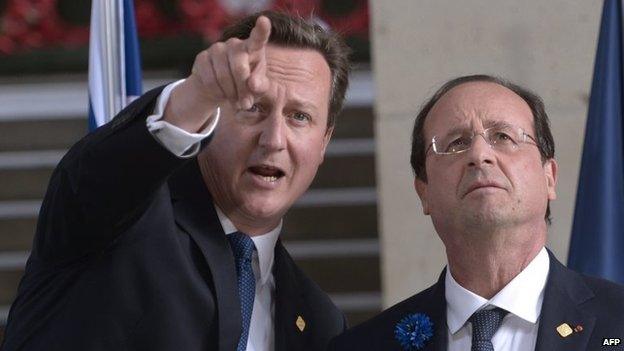
The British and French leaders may jostle over their commissioners' portfolios
Several have opined to me that a British exit would do as much damage to the EU as the UK. One said a British departure would fatally wound the European project.
In an expression of support, Wolfgang Schaeuble, the German finance minister, said: "Historically, politically, democratically, culturally, Great Britain is entirely indispensable for Europe."
Frequently I am asked what does David Cameron actually want. He, of course, does not have to declare his negotiating hand until after the general election in May of next year - presuming he wins.
But the expectation is that he will need some major concessions; either on immigration policy or returning some power to national parliaments. Other leaders believe the EU should act only where necessary and national governments should act wherever possible. Giving substance to such expressions will be long and tough.
What seems more widely accepted than before is that if Britain is to stay in the EU then other countries have to allow "ever closer union" to be interpreted differently.
Ultimately it is unclear whether Europe's leaders will agree that the EU would benefit from doing less and better, or whether closer integration is so closely wound into the DNA of the union that meaningful reforms will struggle to be accepted.
- Published30 June 2014
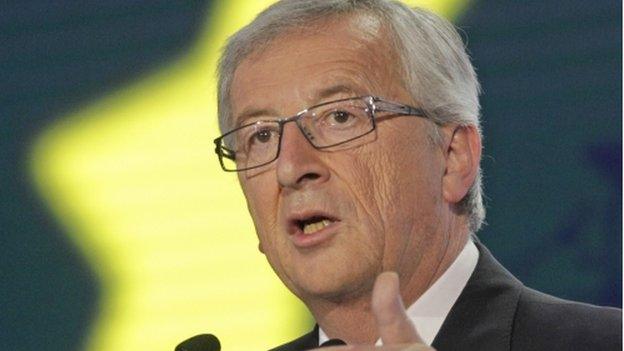
- Published27 June 2014
- Published27 June 2014
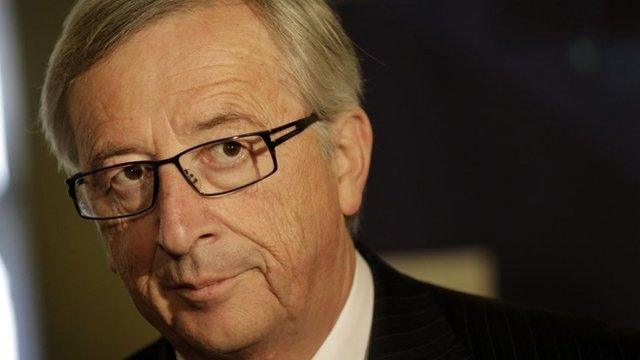
- Published27 June 2014
